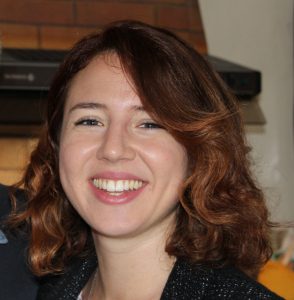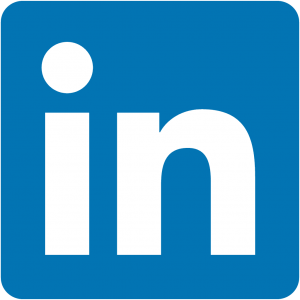
Meet Our Postdocs: Chloé Pasin, Postdoctoral Research Scientist at the Pathology and Cell Biology Department at Columbia University.
Which department are you in at Columbia and what is your position?
I am a postdoctoral research scientist in the department of Pathology and Cell Biology.
Where are you from and how long have you been in NYC?
I grew up in Toulouse, in the south west of France and I’ve been in NYC for 6 months.
Where did you go to school? Describe your path to your current position.
I studied mostly in France and did some internships abroad. My background is in mathematics, but I realized during my bachelor’s degree that I wanted to apply my knowledge in mathematics to concrete questions. I did a master’s degree in mathematics applied to biology/biostatistics. I was lucky to find a very interesting internship in Bordeaux on modeling the dynamics of cells in response to HIV vaccines. After that, I went to work for a few months at the Fred Hutchinson Cancer Research Center in Seattle, where I did some biostatistics to assess the efficacy of a dengue vaccine.
After Seattle, I started my PhD in a public health institute in Bordeaux. I was involved in two main projects: one was on modeling the immune response in response to Ebola vaccine. I worked in collaboration with a pharmaceutical lab on data generated during phase I clinical trials in UK and East Africa. My other project was to develop a mathematical tool to optimize immunotherapy schedules in HIV-infected patients. I graduated at the end of 2018 and started the postdoc here a couple of months later.
What research question are you trying to figure out right now?
I am working on data from patients with blood cancers who underwent chemotherapy and a stem cell transplant, which is supposed to reconstitute their immune system with healthy blood cells. I am trying to identify a subset of cells early after the transplant whose dynamics could help predict the clinical state of the patient (relapse, graft-versus-host-disease) and their long-term survival.
In a nutshell, what tools or approaches are you using to try and figure this out?
During my PhD I was mostly modeling the dynamics of cells with systems of differential equations, and using estimation methods to assess the value of the parameters of the system based on clinical data. It can help give a better understanding of how the immune system works and allow us to quantify some of these processes. Eventually, using these kinds of methods could help optimize vaccines and treatments. Now, I am learning new methods of variable selection that are part of the “machine learning” field. It helps select a few factors that are associated with a clinical event among a large number of variables.
What is the best part of your job?
I like how diverse it is, and I enjoy working with people from different backgrounds (medical doctors, immunologists, mathematicians, biostatisticians, etc.). I think the best part is being able to discuss a concrete question with a clinician and trying to figure out which tools and methods should be used to answer it. And also, always learning new things.
Why do you love science?
Because you get to ask a lot of questions! And you might also get some answers about how things work.
What advice would you give to people interested in a career in science?
I think what’s important is to be curious and follow what you are interested in. You will not be good in your research if you don’t enjoy it! Also, do not think that having a degree in a field prevents you from working in a different one. You can adapt and learn new things if you want to.
Tell us a bit about yourself or your projects that are not related to science.
At the moment I am also trying to learn more about American history and politics by reading books, going to exhibitions, reading more newspaper articles… and I am also trying to speak better Spanish. I’m also going quite often to yoga.
What is your favorite thing about NYC?
Can I choose more than one? I would say the diversity of people, which makes you feel that you can be yourself without anyone judging, the cultural events, and the food!
When did you join CUPS and what is your current role, if any?
I joined the Outreach and Communications committee a couple of months ago. I don’t have a specific role there, but I am trying to be more involved in outreach events. I am particularly interested in speaking about science to kids and improving access for women in STEM fields.
What do you like the most about CUPS?
I think it’s nice that it brings people from different backgrounds together to try and make the postdoc experience more than just about your own work.
To follow Chloé:
